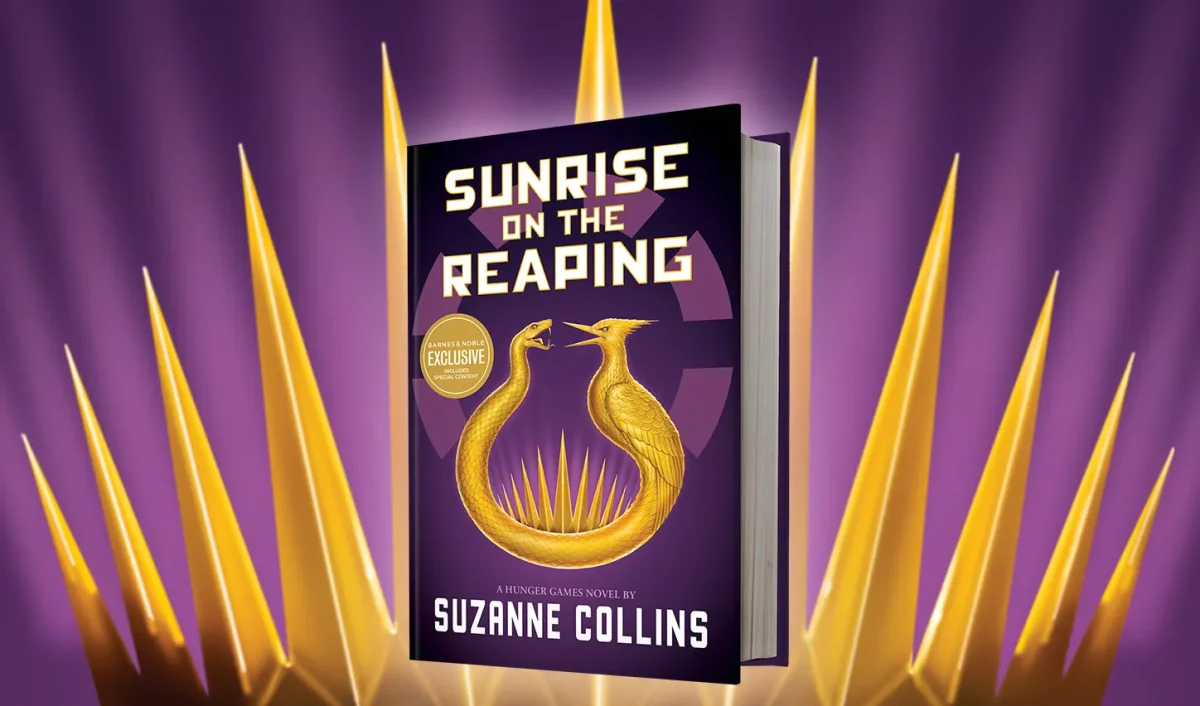“All propaganda is lies, even when one is telling the truth. I don’t think this matters so long as one knows what one is doing, and why.” – George Orwell
Alongside three others, this Orwellian quote precedes the story, perfectly setting the dystopian tone for Suzanne Collins’s latest installment to the Hunger Games series, Sunrise on the Reaping. Readers are re-immersed in the oligarchic tyranny of Panem as the nation prepares for the 50th Games, the Second Quarter Quell. 16-year-old Haymitch Abernathy, who was initially introduced in The Hunger Games as Katniss and Peeta’s mentor, narrates the novel. What ensues is an emotionally charged, masterfully written narrative that not only deepens the world-building of Panem and supplies insights into the series’ lore, but also provides a striking commentary on the socio-political climate of our modern world and the volatility and power of propaganda. As an avid fan of Collins’s work, I will never cease to be amazed at her mastery of rhetoric and prose and its application to a fictional society that holds a mirror to our own. Sunrise on the Reaping is not only an installment to a popular series- it inspires a feeling of vocation, to take action, and to take accountability in the world we live in.
If you enjoyed Sunrise on the Reaping and are looking for more dystopian literature, here are some great recommendations for your next read!
- 1984 by George Orwell- Orwell, a source of inspiration for Collins, authored the novel forty years before its titular date. It depicts a dystopian Great Britain in which Big Brother is always watching.
- Fahrenheit 451 by Ray Bradbury- The narrative follows Guy Montag, a firefighter bound by trade to burn literary works. Montag’s world has become overly mechanized and is dominated by the superficial. Can he find the humanity he seeks in the very books he’s ordered to destroy?
Happy reading! And, as they say in the Capitol, “May the odds be ever in your favor.”
References
Collins, S. (2025). Sunrise on the Reaping. Scholastic Press.

